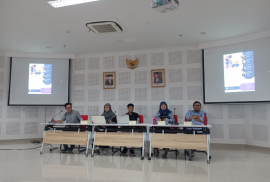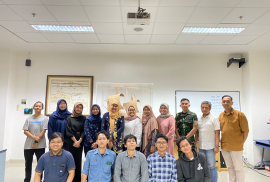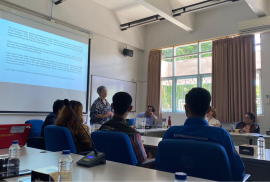The Open Senate Meeting in commemoration of the 78th Anniversary of Faculty of Cultural Sciences UGM was successfully held on Tuesday, March 5, 2024. In the event, one of the lecturers and students of the History Department of FIB UGM won awards as outstanding lecturers and outstanding students. The lecturer is Dr. Agus Suwignyo, M.A. and a History student class of 2020, namely Dinda Nabila.
When interviewed, Dinda Nabila revealed that she felt very grateful for the award that had been given to her. “Alhamdulillah, of course grateful. If you think back a little, I tried many things and of course it wasn’t always smooth. A lot of the behind-the-scenes process is tiring. But with all that, I can cherish every process. But, other than that, I felt like I don’t deserve it, because, yes, there are many friends who are cool and deserve this too,” said Dinda.
Dinda also gave a message to her friends and juniors to keep appreciating every process that is being passed, especially the lecture process. She said, “trust your process, no matter how fast or slow. As long as you have dreams and faith, you’ll get it at your right time. So, from now on, don’t think too much over things you can’t control, just focus on what you can and do your best!”





